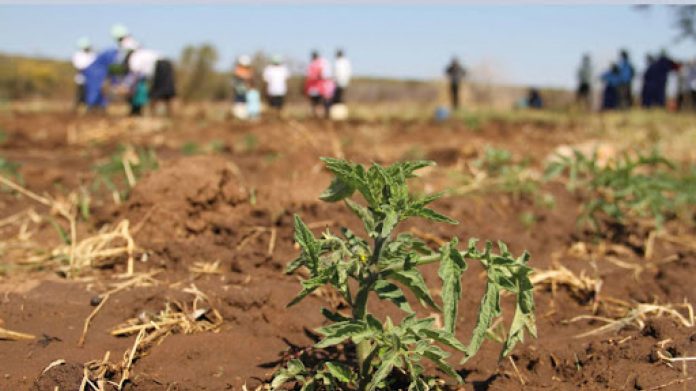
Farmers who have encountered major losses over the years due to natural disasters and other unplanned events will now have the opportunity to gain some financial assistance.
That will come in the form of an insurance scheme through which crop, poultry, livestock farmers and others will be able to access millions of dollars in compensation.
The project will be facilitated by the Department of Environment (DoE) with support from the Ministry of Agriculture.
DoE official Craig Cole told Observer, “We are looking at opportunities for our farmers and one of the things we have been looking at is how we can help farmers to recover their losses in the event of a storm or any disaster, even drought.
“So, what we have existing in the Caribbean, for example, I think there is something where if anything happens, the country itself, Antigua itself, can claim within 48 hours.
“So, we are looking at different ways of helping farmers at minimal cost to them so that they can be covered in the event that they have these issues happening, they can be provided with some funding so that in the event they lose crops, they file a claim and this will be checked of course by the Ministry of Agriculture. The mechanisms have to be put in place,” Cole explained.
He said local farmers have suffered for years and the department will be doing what it can to ensure assistance is forthcoming.
Cole, a former educator, also spoke about additional opportunities in the pipeline.
“We are looking at other areas to assist farmers, even the area of developing loans for them which we are piloting down in the area of Sheckerley Mountains right now.
“We are also looking at giving them grants to help to develop their business plans, help them to get machinery early. We are looking to work with the Poultry Farmers Association and other such groups to see what we can do.
“We are also testing some reverse osmosis plants, the miniature reverse osmosis plants that are solar-powered and those pumps that are solar-powered also, because … over a period of time, there’s this measure of salinity that builds up in groundwater in certain areas of Antigua and it makes it difficult to utilise that water in its current state,” he explained.
He revealed that the DoE is targeting around US$5 million for the funding.
Over the next two years the DoE expects to develop 40 new projects for Antigua and Barbuda in order to access millions of dollars that have been pledged, by the world’s major greenhouse gas polluters, to the Global Environment Facility.
